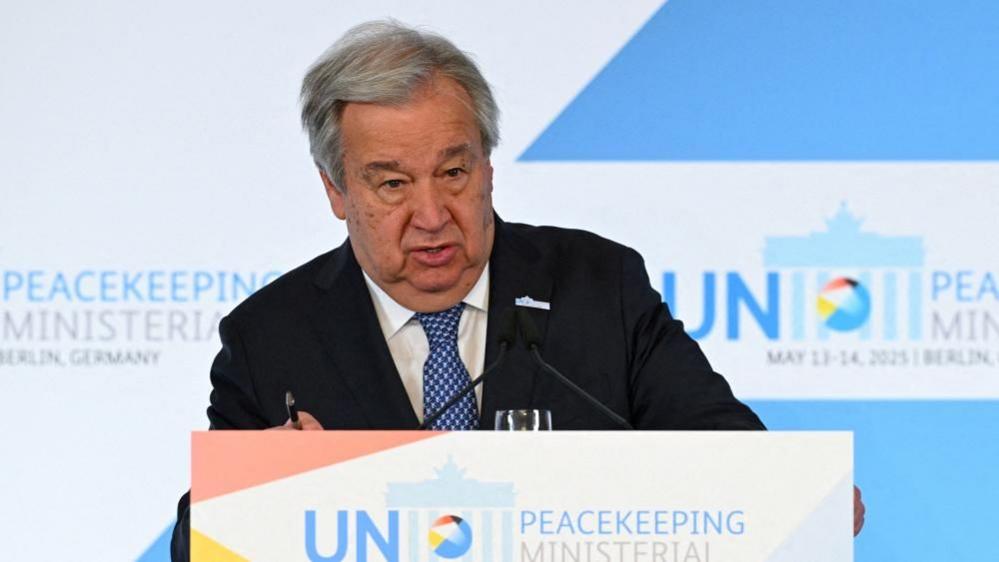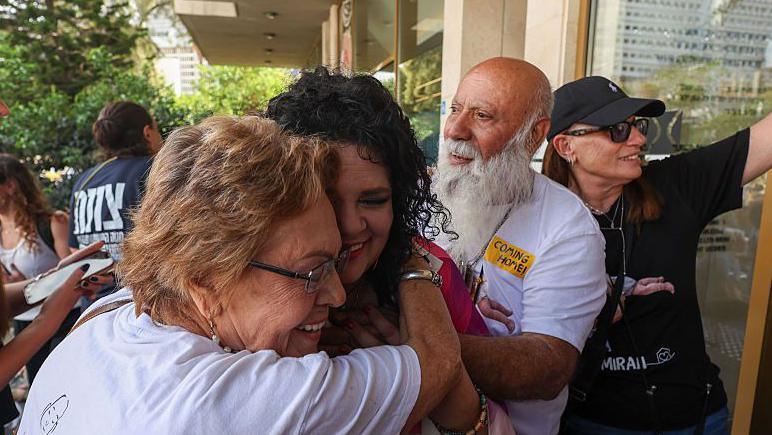Israeli government approves Gaza ceasefire and hostage deal
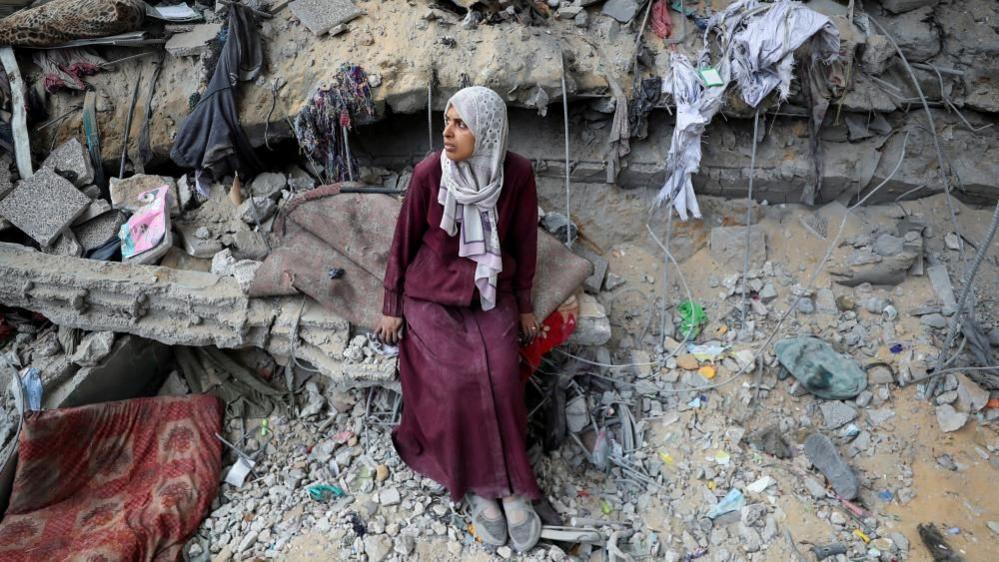
A Palestinian woman sits on the ledge of a heavily damaged building in Gaza.
- Published
The Israeli government has approved the first phase of a Gaza deal which will lead to a ceasefire and the release of hostages and prisoners.
"The government has just now approved the framework for the release of all of the hostages – the living and the deceased," Israeli Prime Minister Benjamin Netanyahu said on X early on Friday.
The Israeli military will now withdraw to a line that will leave it in control of about 53% of Gaza.
Hamas must then release 20 living hostages within 72 hours, followed by the return of the bodies of 28 deceased hostages.
Israel will then release about 250 Palestinian prisoners serving life terms and 1,700 detainees from Gaza, a Palestinian source told the BBC.
Hundreds of aid lorries will also carry food, medicine and fuel to Gaza's two million people, most of whom have been displaced, the UN says, with many sheltering in tents or the rubble of flattened cities.
Israel will allow 400 aid lorries to enter Gaza daily during the first five days, with the number to increase gradually in later stages, a senior Palestinian official told the BBC.
The US is moving up to 200 troops already based in the Middle East to Israel to coordinate a multinational force which will monitor the ceasefire, according to US officials.
Embedded in it will be forces from Arab and Muslim countries including Egypt, Qatar, and Turkey who will observe the truce and report any violations.
US officials say that no American forces will enter Gaza. The taskforce is led by US Central Command based in the region and is intended oversee the progress of the ceasefire agreement and also help coordinate humanitarian assistance.
Assuming the hostage and prisoner exchange is completed, the officials say the intention is then for a so-called International Stabilisation Force to be built, but this is yet to be agreed between the sides.
The approval of the deal by the Israeli government came after hours of cabinet meetings that went into the early hours of Friday in Israel. US President Donald Trump's son-in-law Jared Kushner and special envoy Steve Witkoff met Netanyahu and then joined the cabinet meeting.
Far-right minister Itamar Ben-Gvir said before the vote that he would oppose the deal as it results in the release of prisoners Israel has accused of murder.
He said if Hamas was not "dismantled", he would also vote to bring down the government.
While the deal represents a significant diplomatic breakthrough, it covers only a portion of Trump's broader 20-point peace initiative. Crucial issues - including the disarmament of Hamas and the future governance of Gaza - remain unresolved.
Hamas has said it will not lay down its arms until a Palestinian state is established, while Trump's plan envisions Gaza under a temporary technocratic administration before being handed to the Palestinian Authority.
The announcement of the ceasefire deal was met with scenes of jubilation across both Israel and Gaza. In Tel Aviv's Hostages' Square, crowds waved Israeli and American flags, chanting: "They're coming home", as fireworks lit the sky.
In southern Gaza, Hanaa Almadhoun, a mother of three displaced by the war, told the BBC she felt "relieved and optimistic" and hopes to be able to return to her home in the north.
Israel launched the war in Gaza in response to the Hamas attacks on Israel on 7 October 2023, when around 1,200 people were killed and 251 were taken hostage.
Since then, Israel's military offensive has killed 67,194 Palestinians in Gaza, according to the territory's Hamas-run health ministry, including, including 20,179 children. These figures are seen as reliable by the UN and other international bodies.
The ministry has said another 460 people have died from malnutrition, including 182 since a famine was confirmed in Gaza City in August by UN-backed experts.
UN leaders and former UK Foreign Secretary David Lammy have said the situation is a "man-made" crisis because of Israeli aid restrictions, including an 11-week total blockade earlier this year that Israel said was designed to pressure Hamas to release hostages.
Israel has called the UN-backed report a lie and has said it does not now restrict aid.
- Published9 October
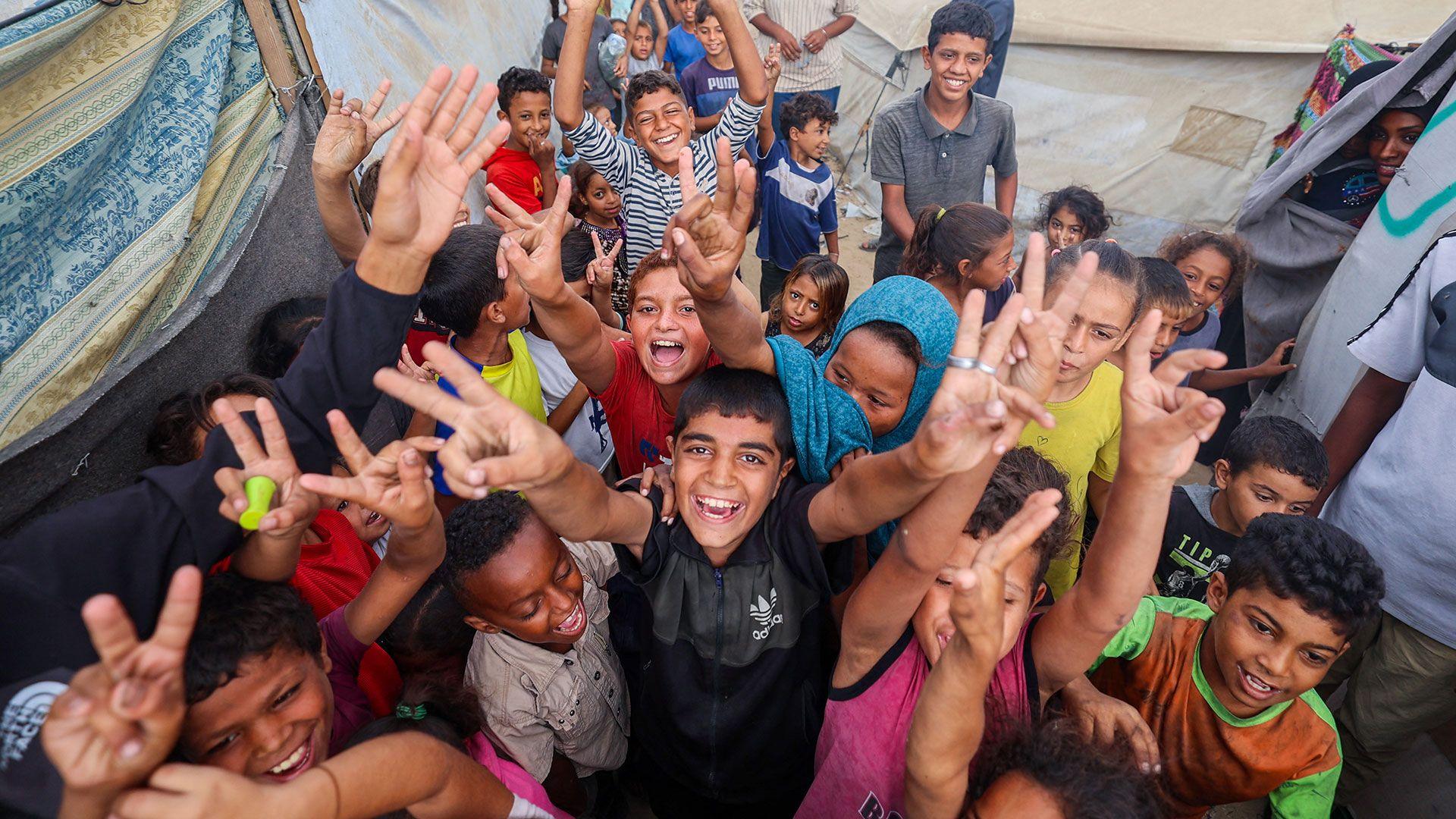
- Published9 October
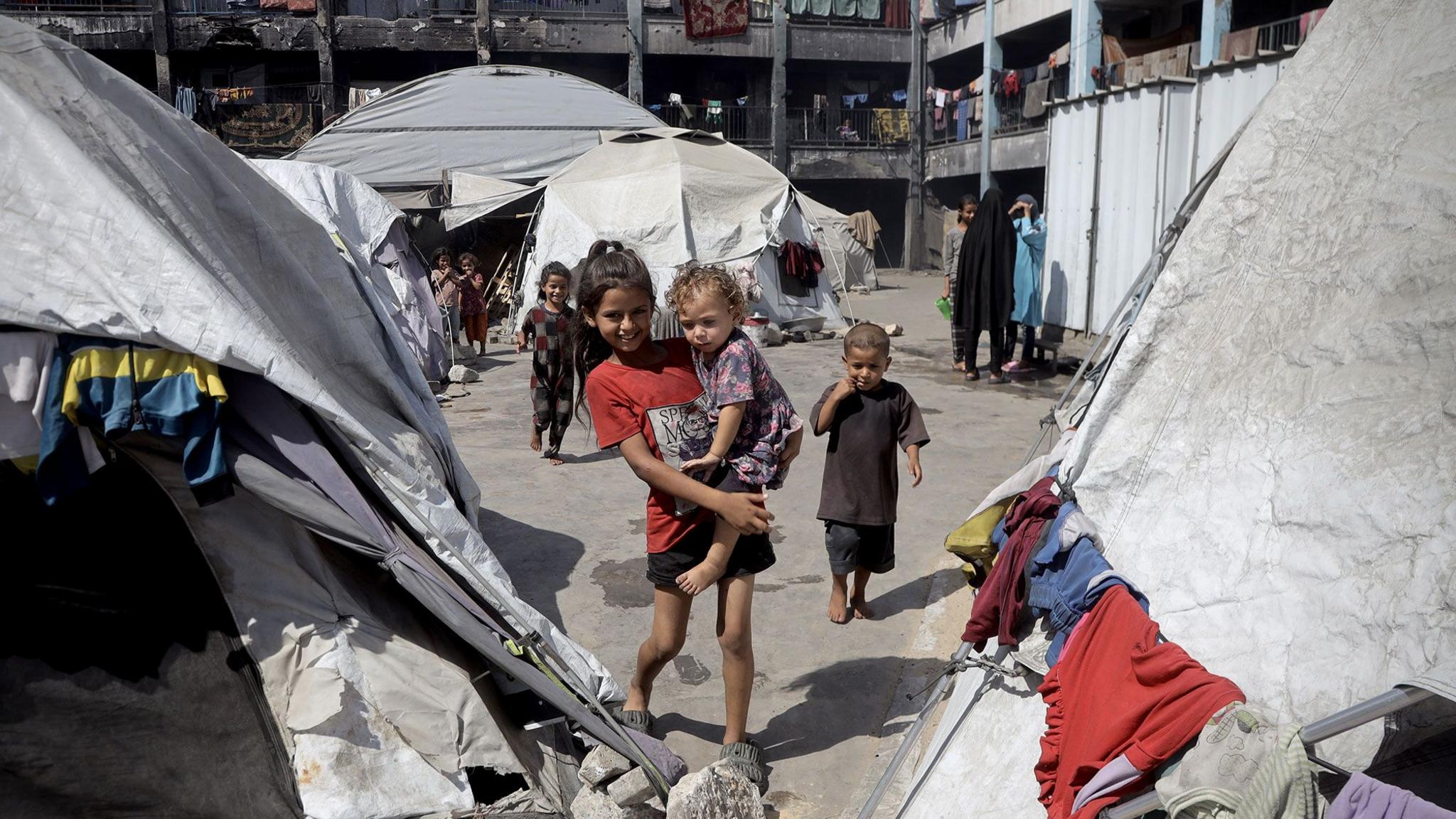
- Published9 October
